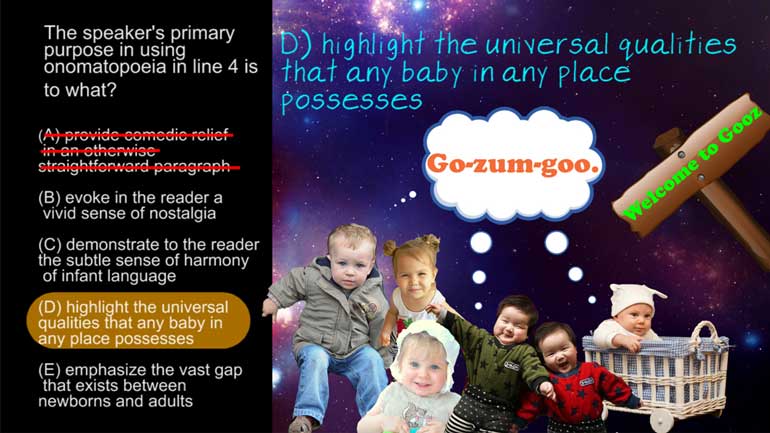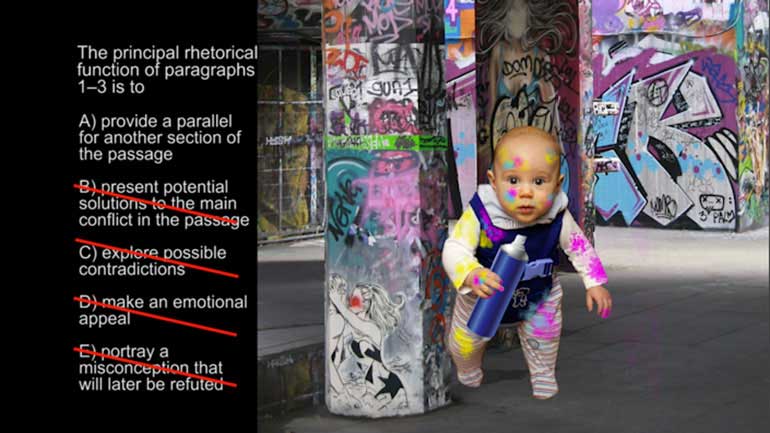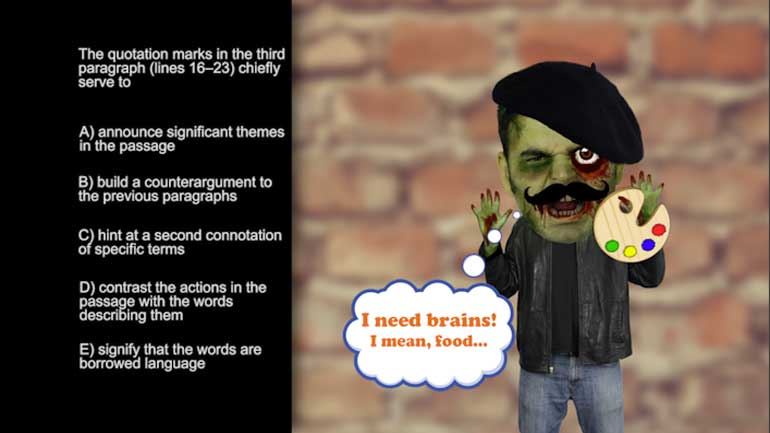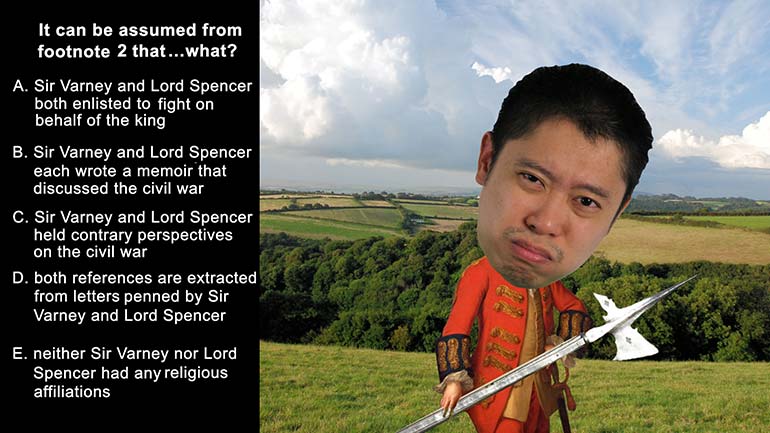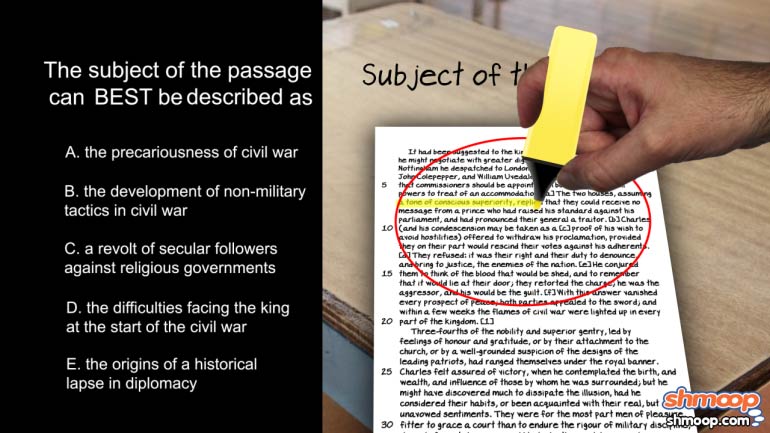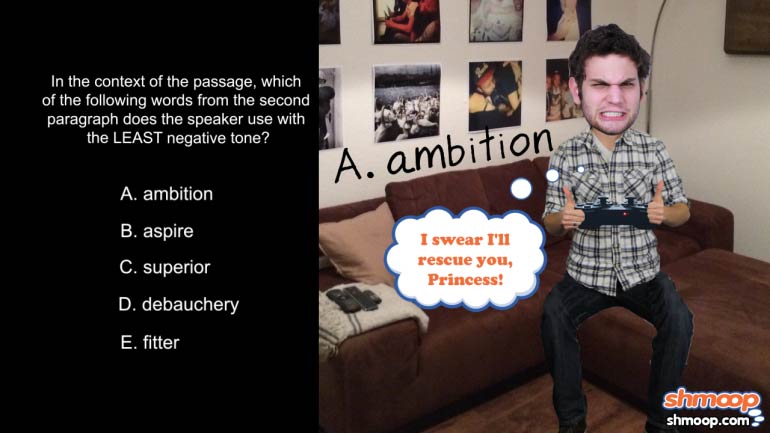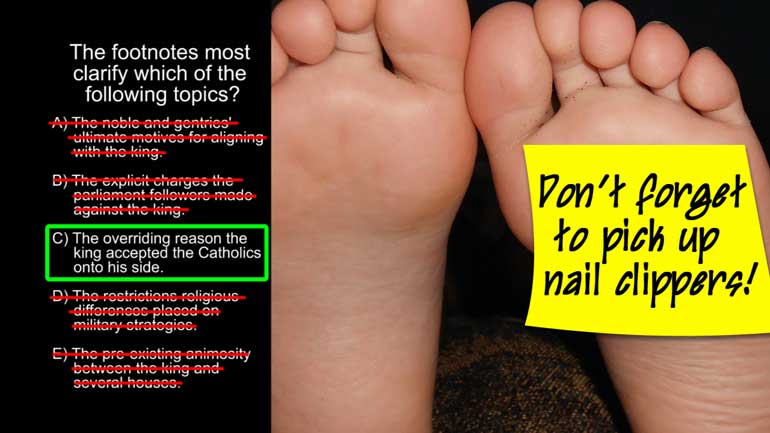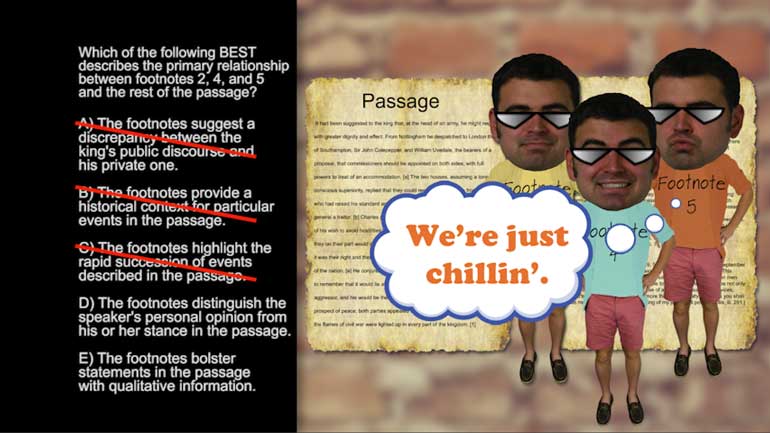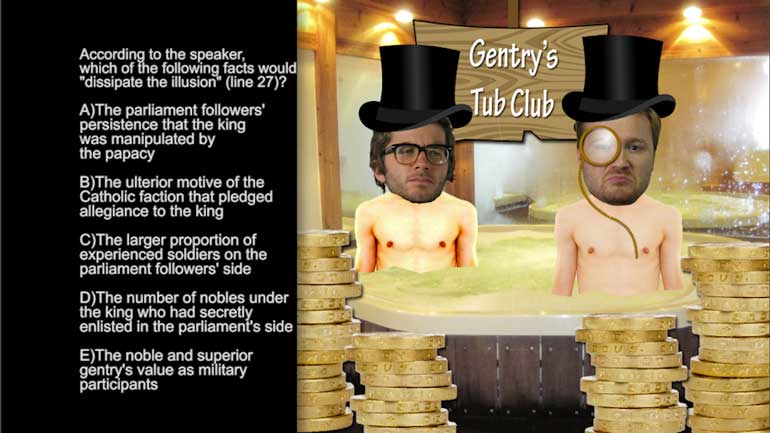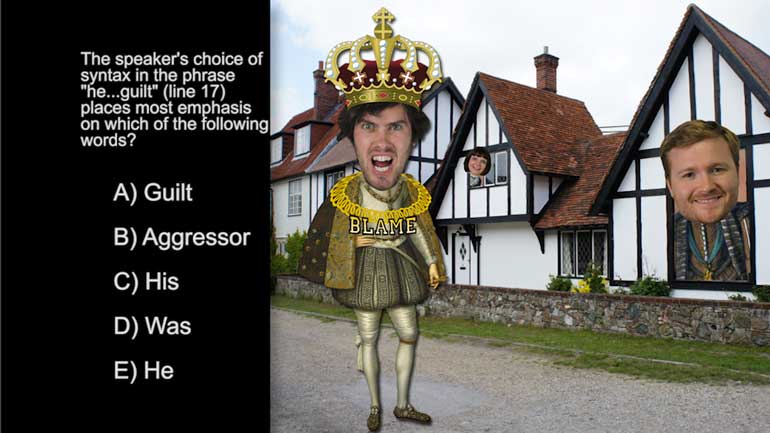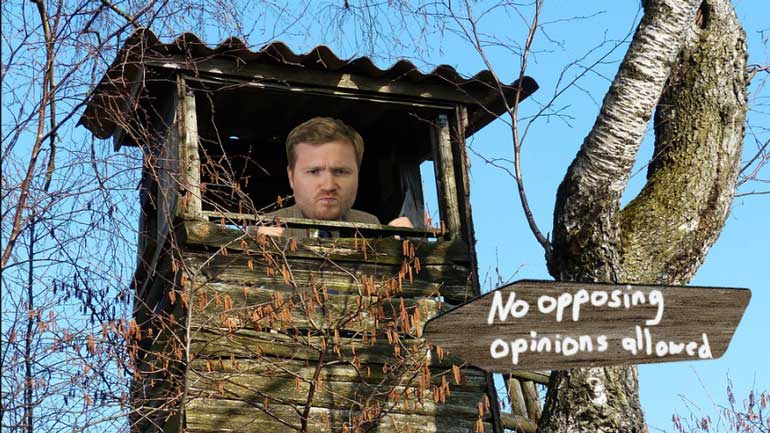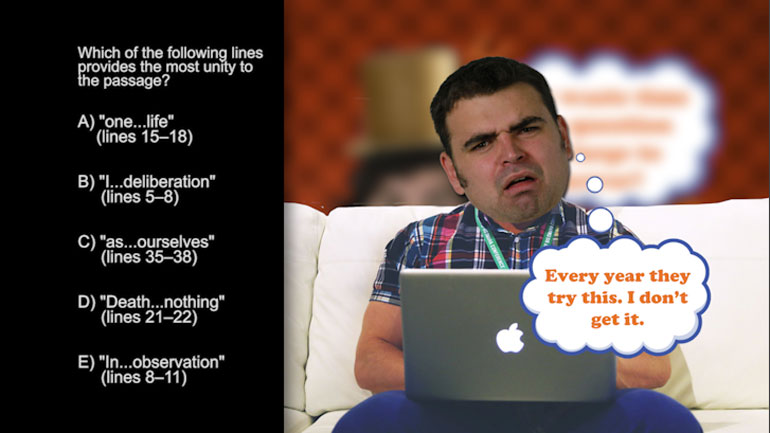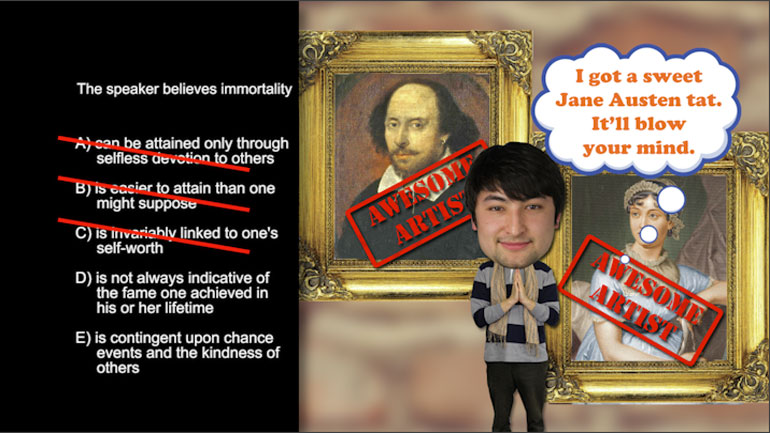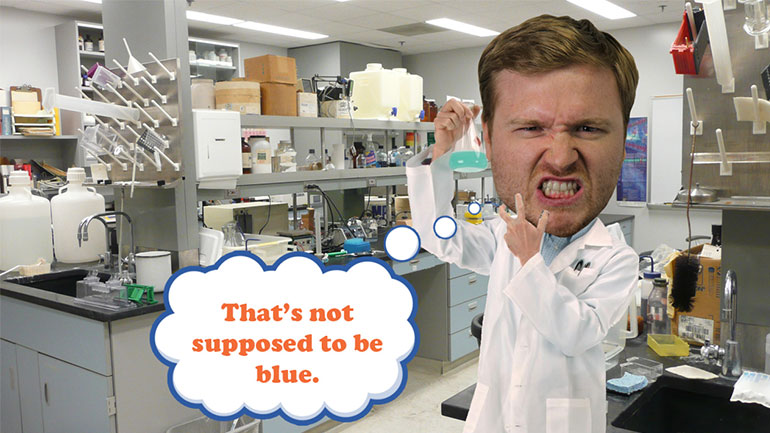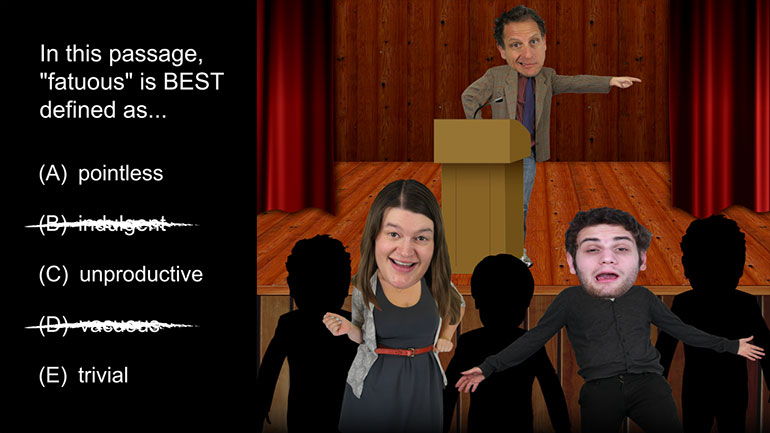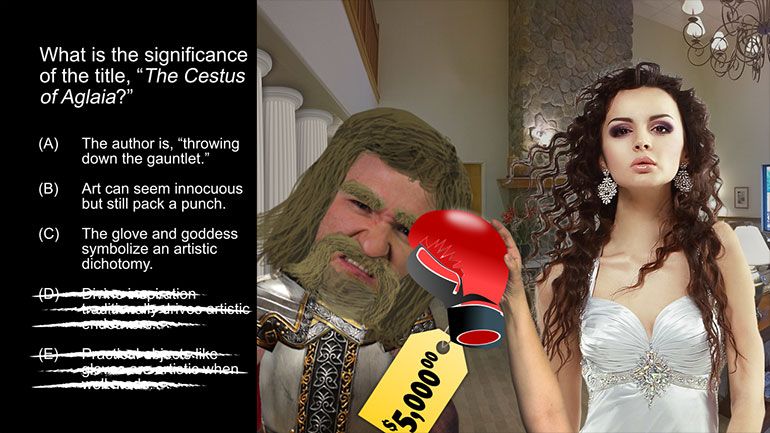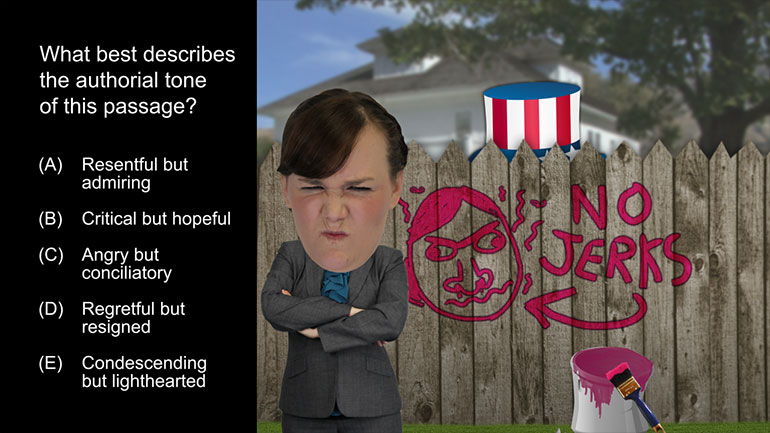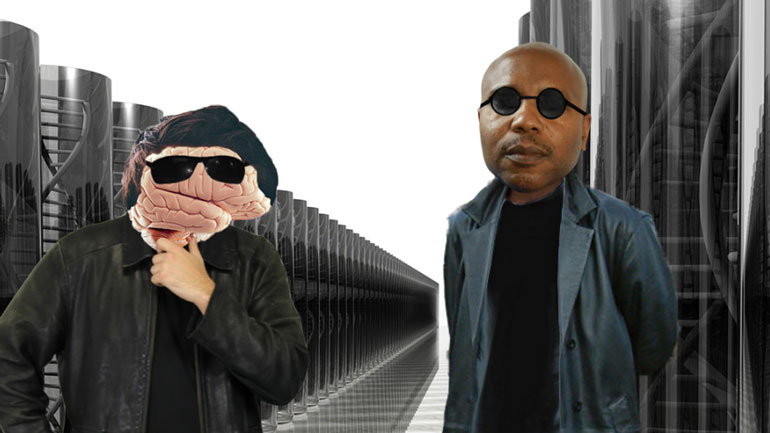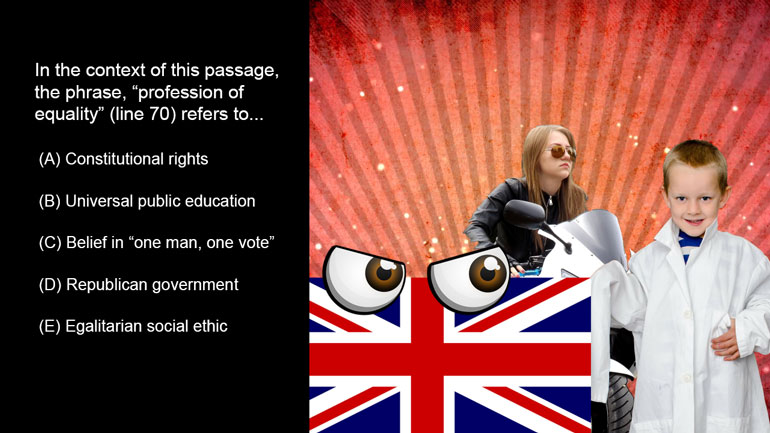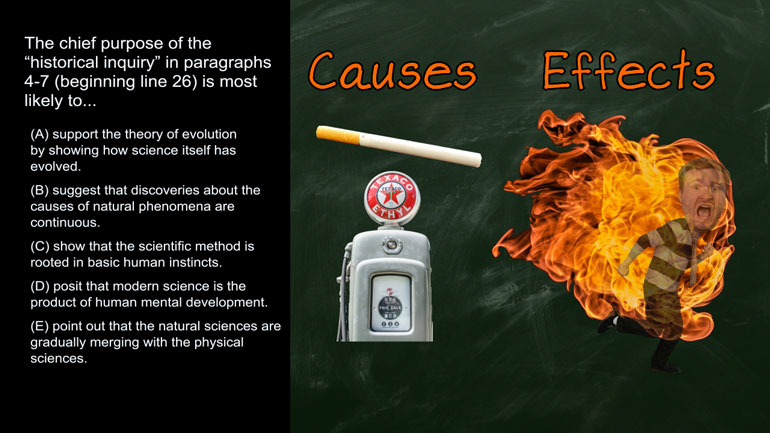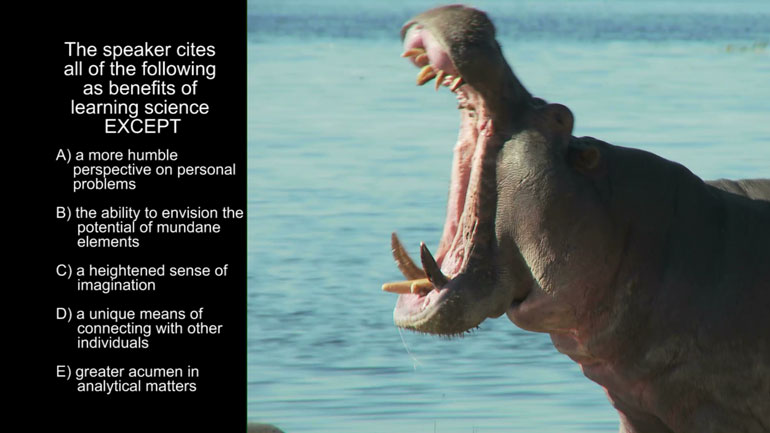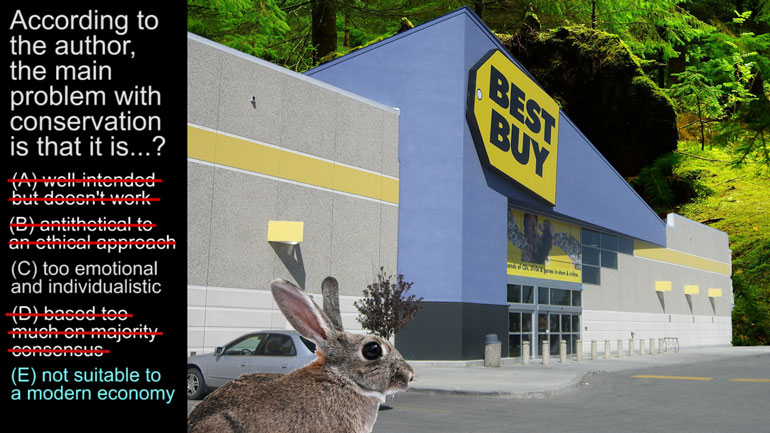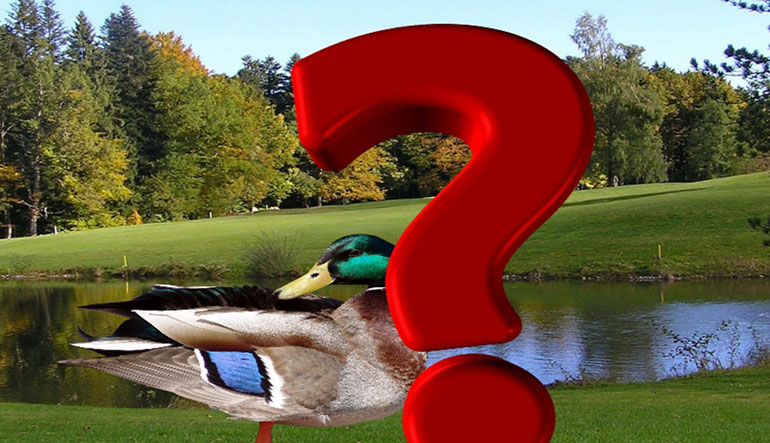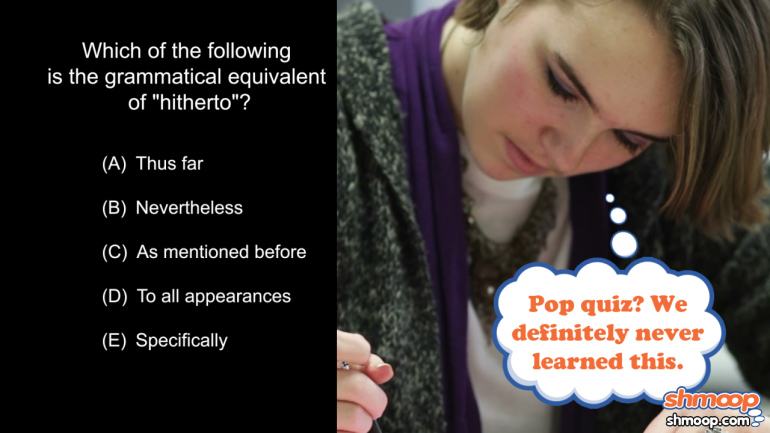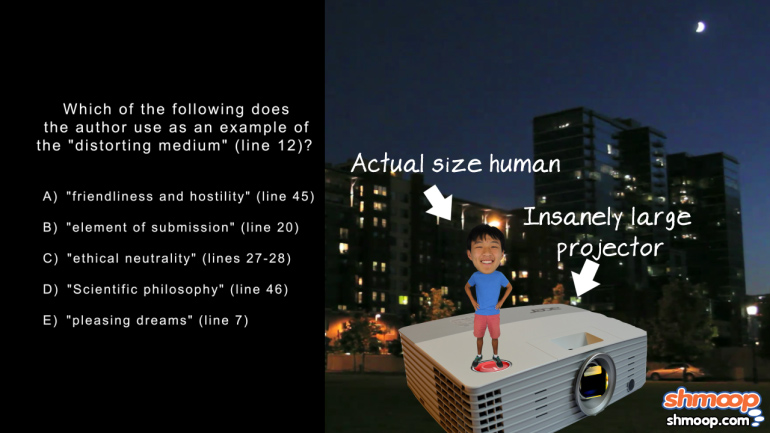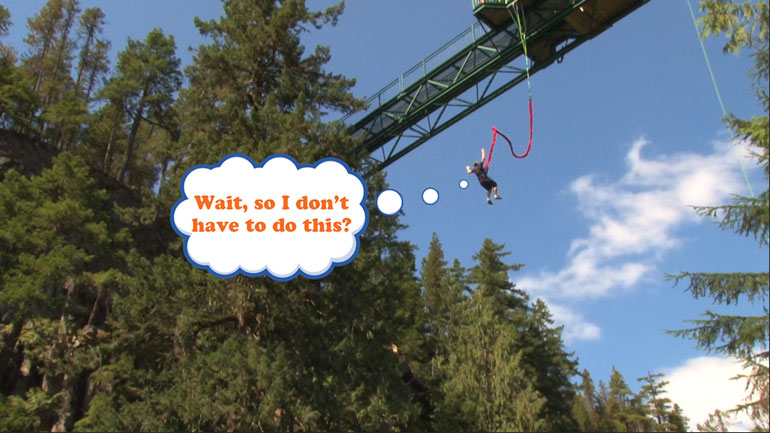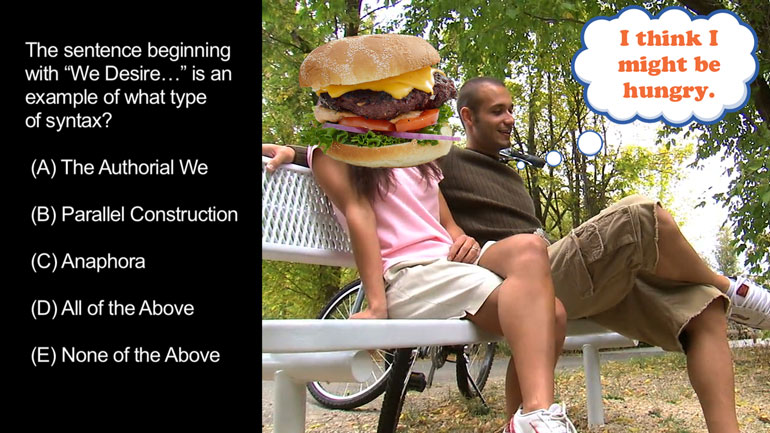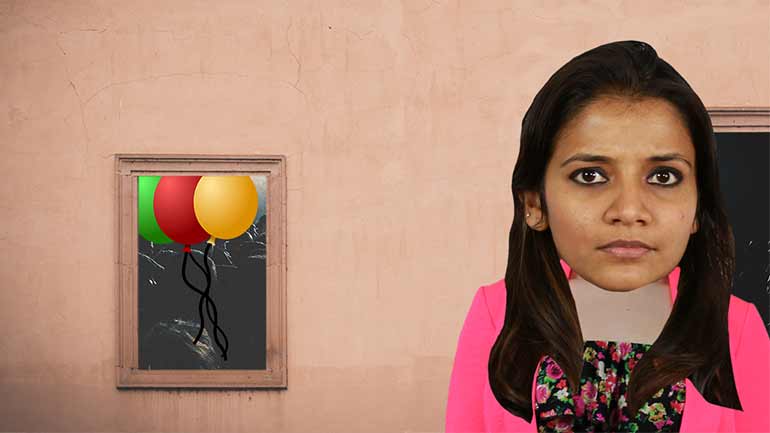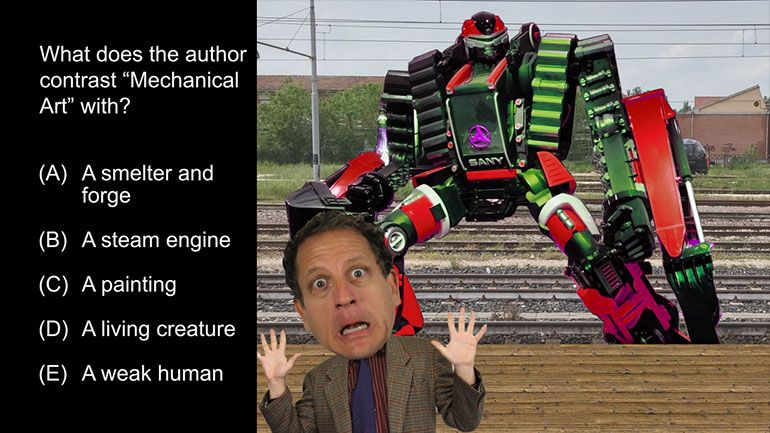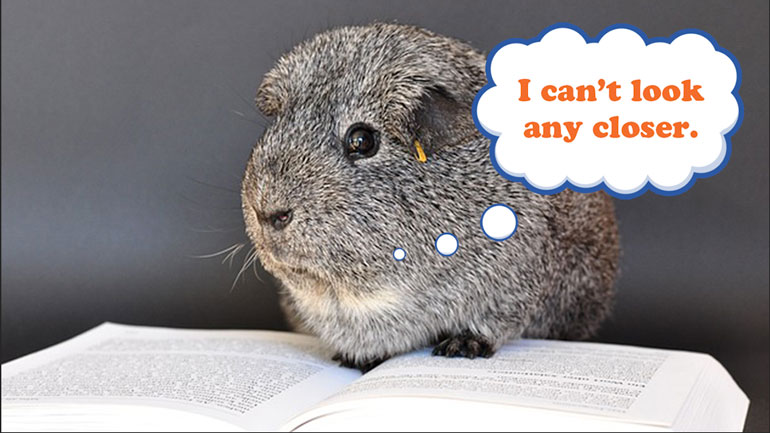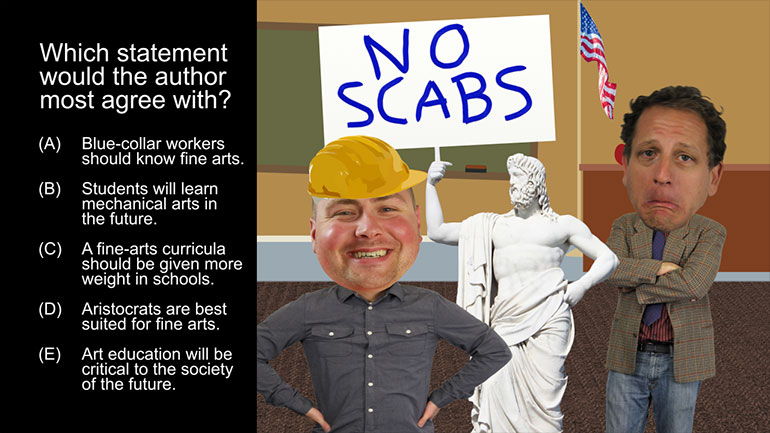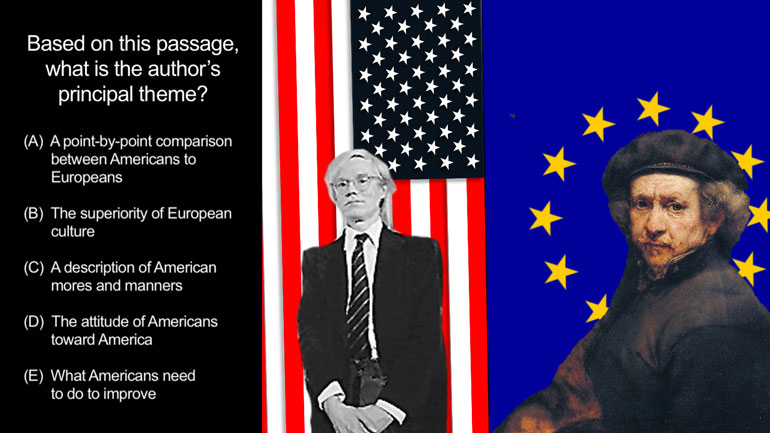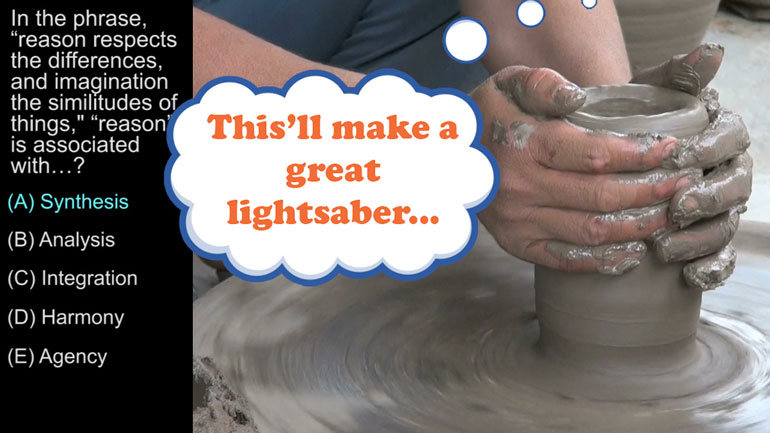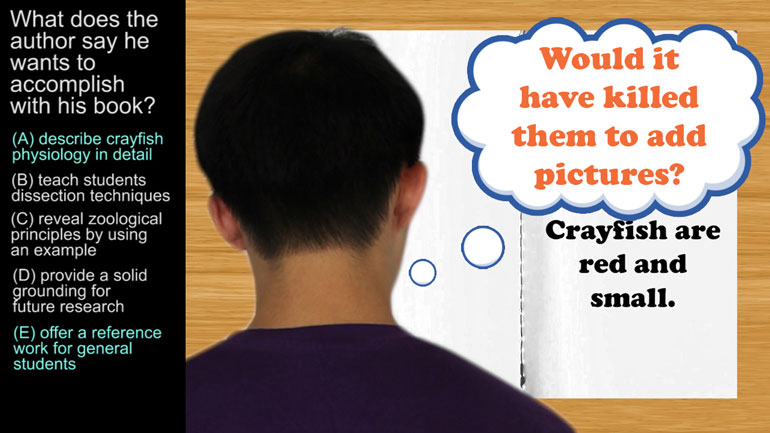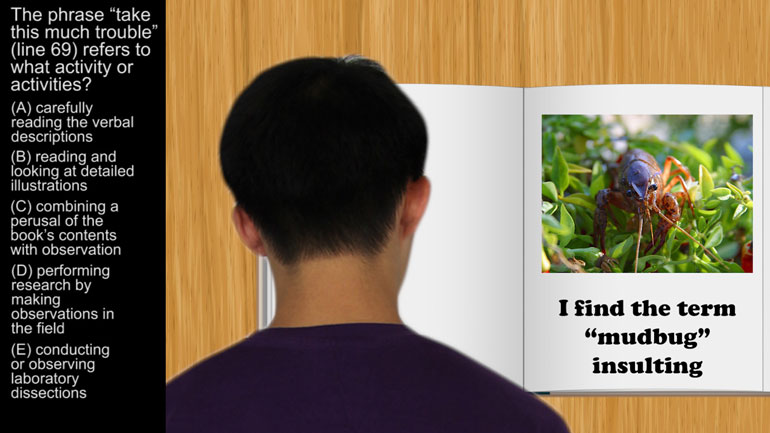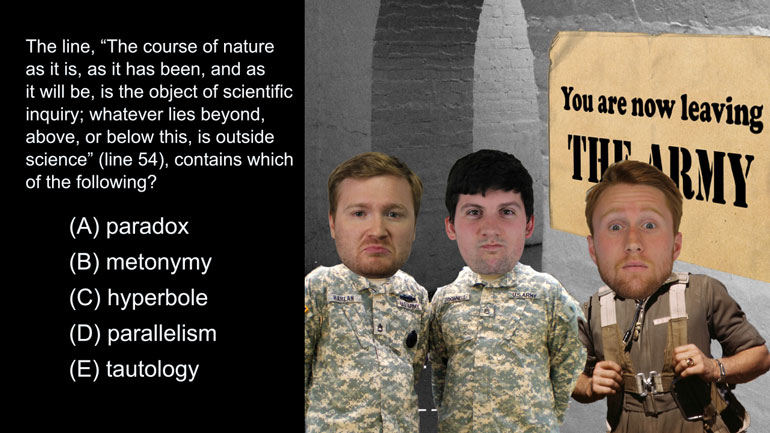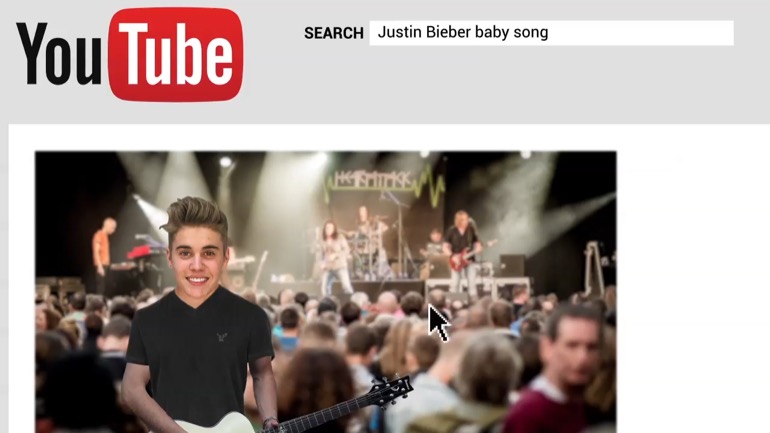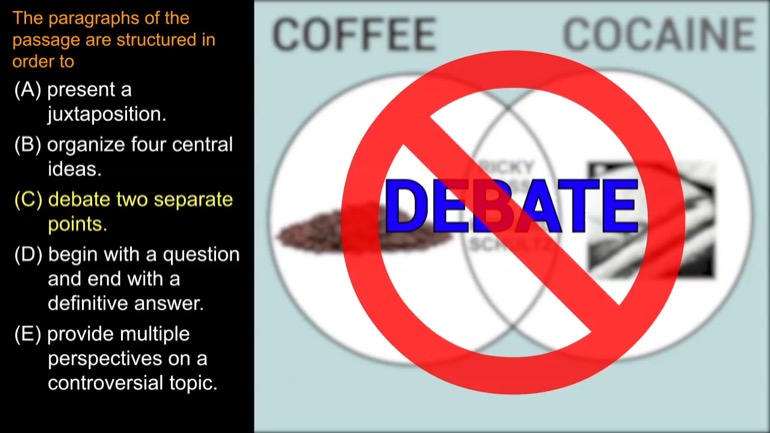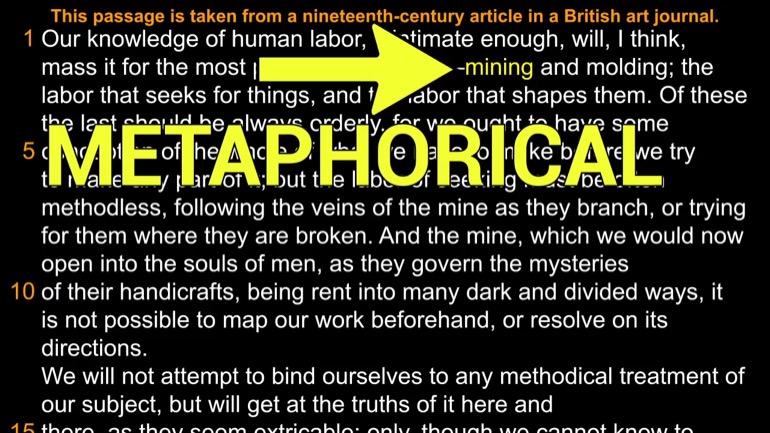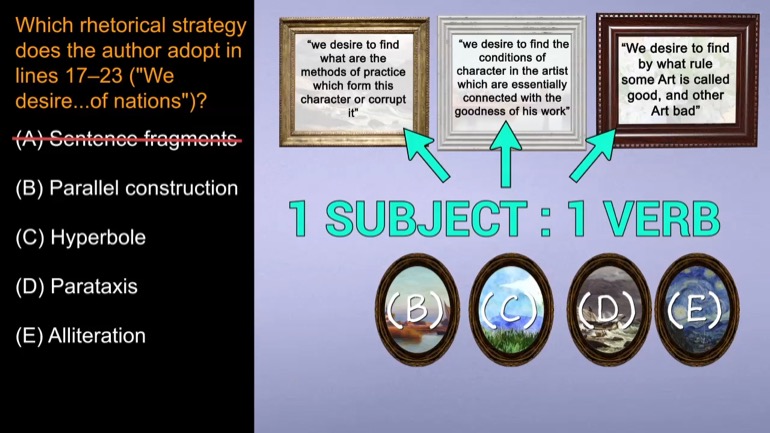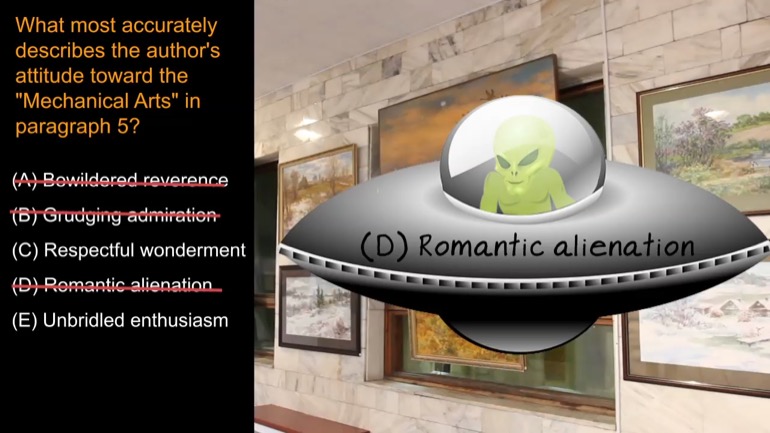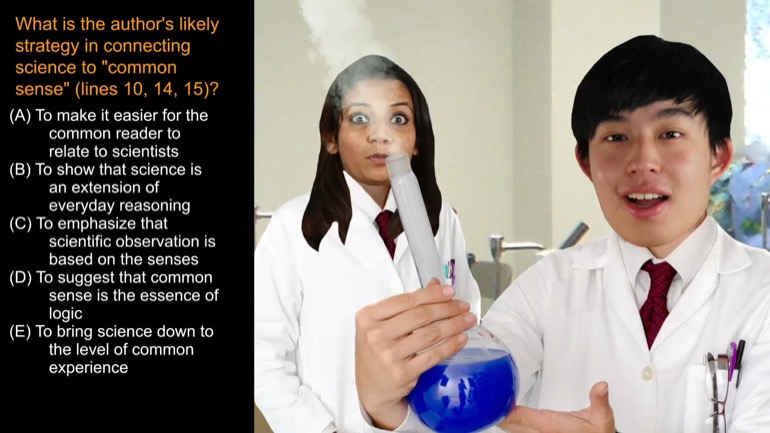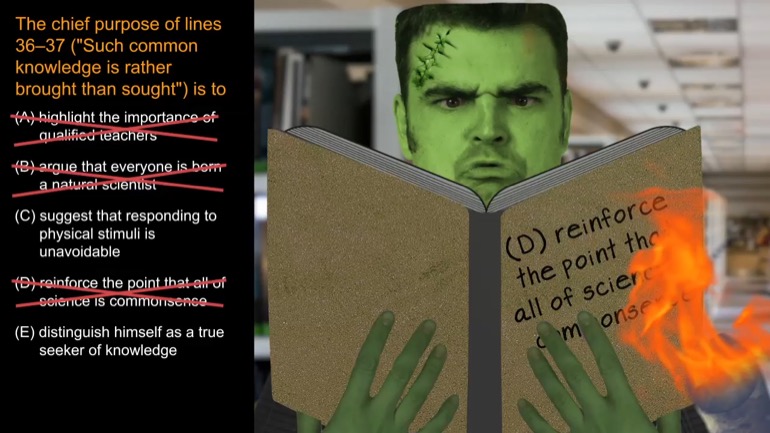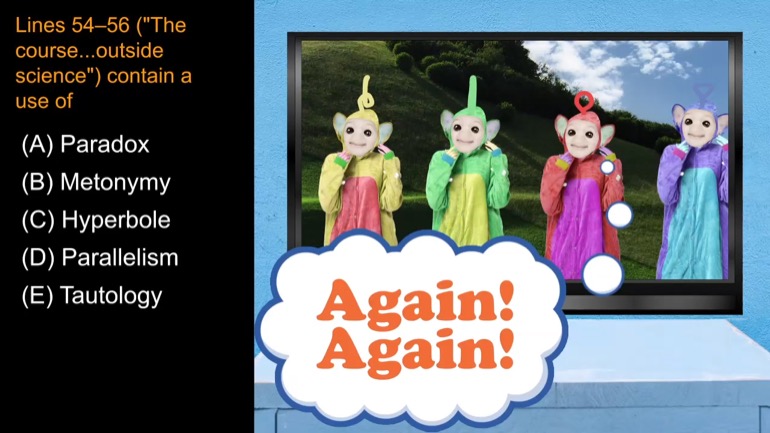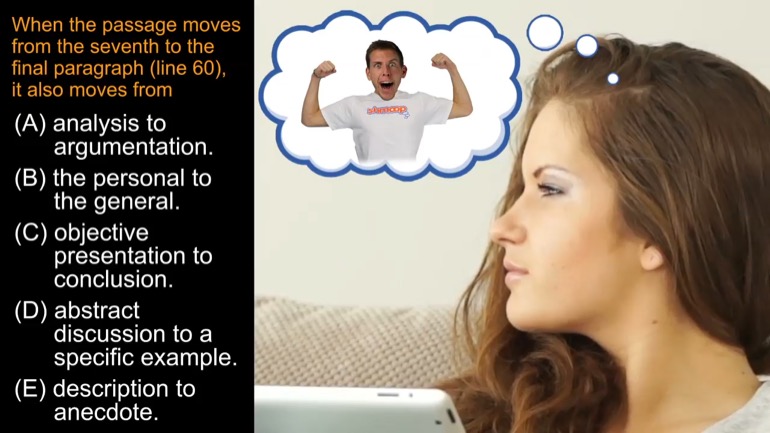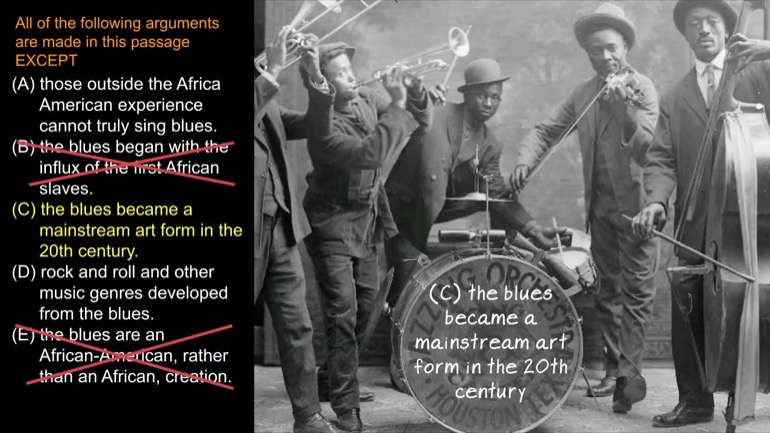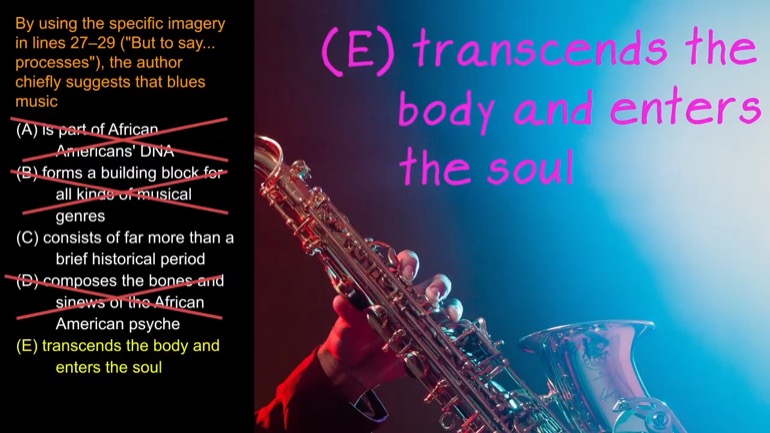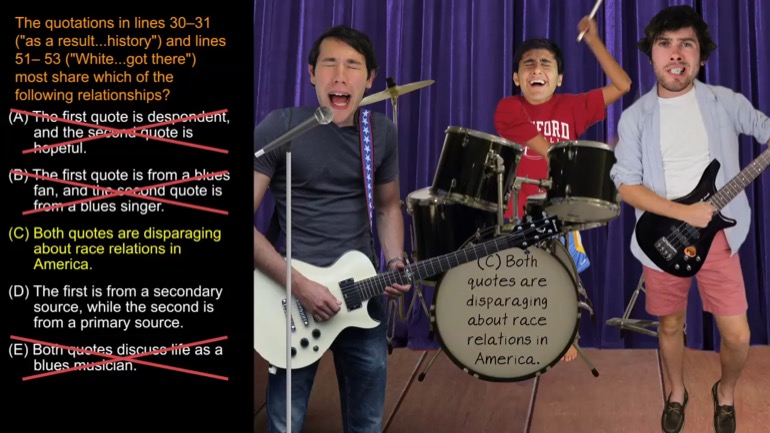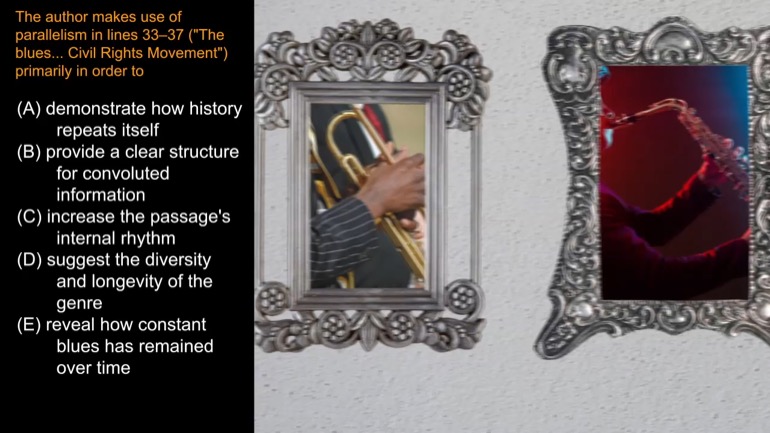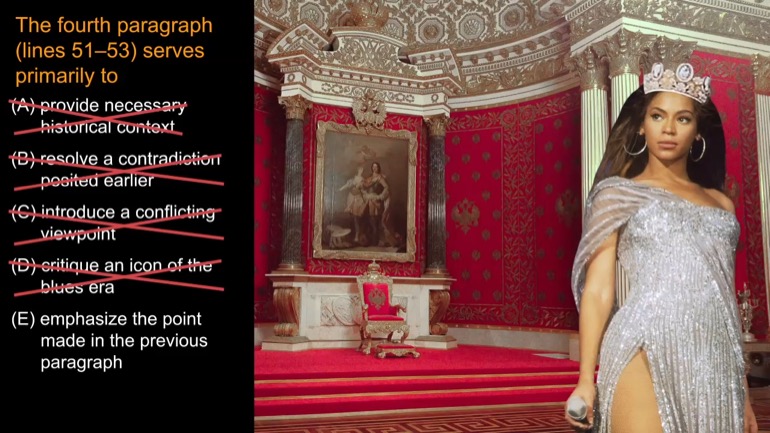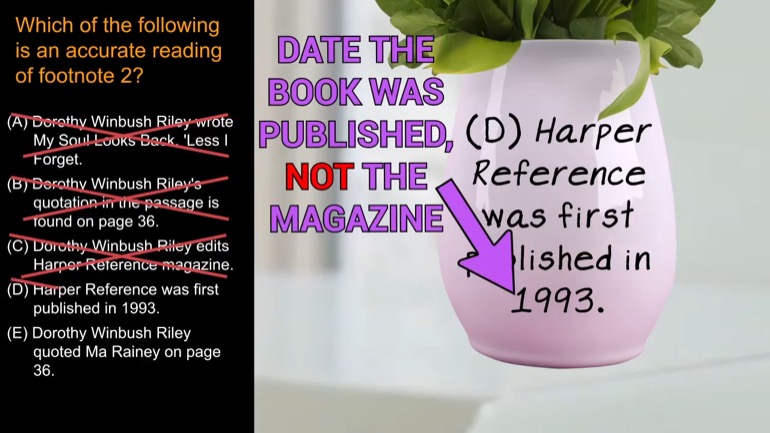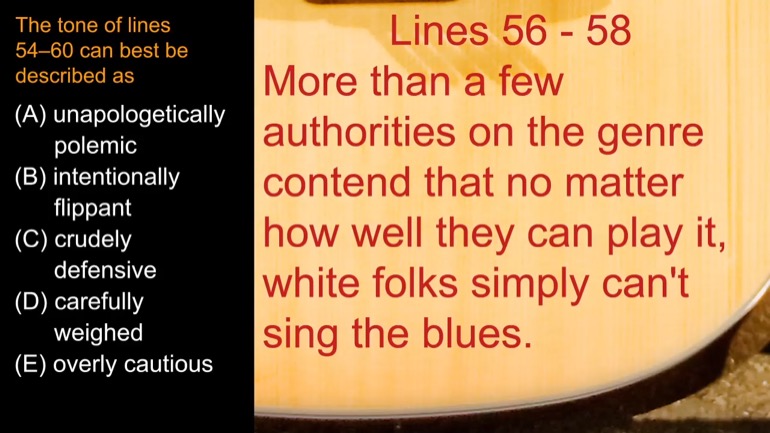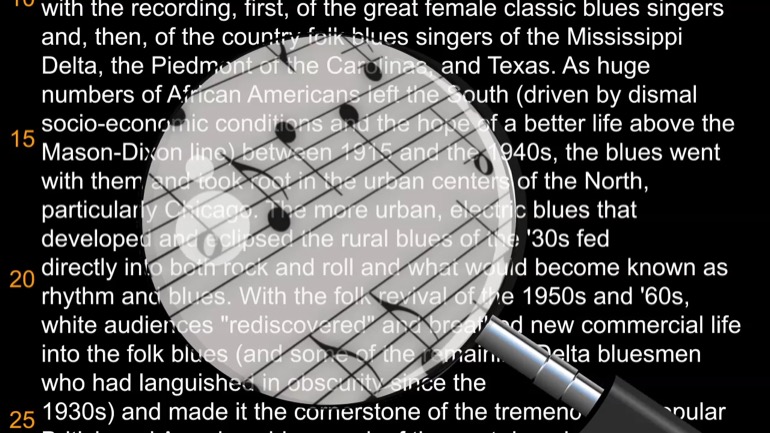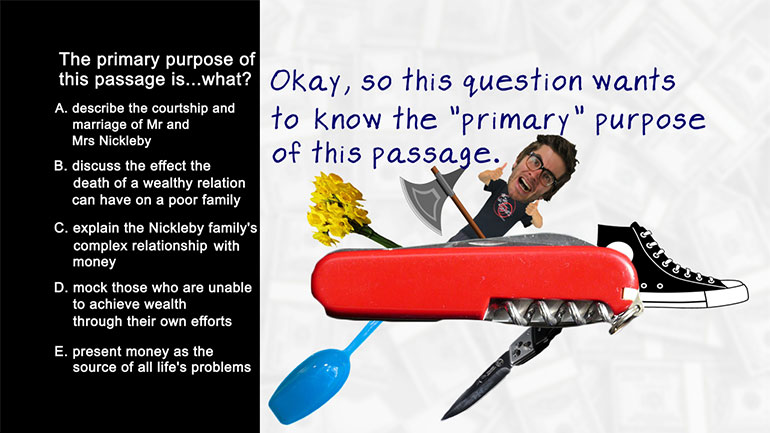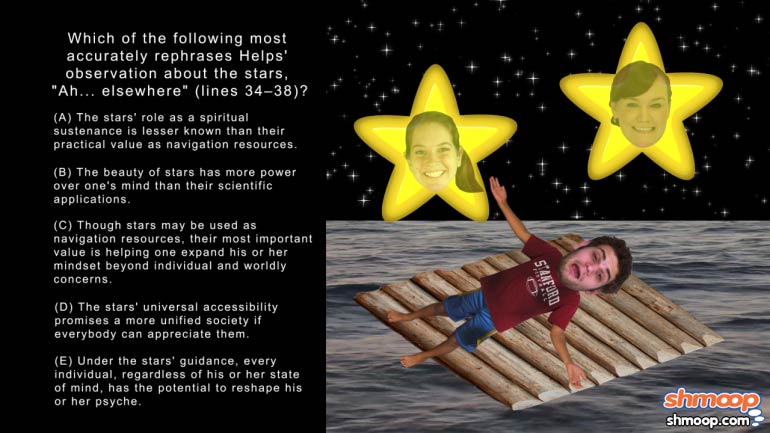ShmoopTube
Where Monty Python meets your 10th grade teacher.
Search Thousands of Shmoop Videos
Passage Drill Videos 141 videos
AP English Language and Composition: Passage Drill Drill 1, Problem 2. What is the speaker's primary purpose in using onomatopoeia in line four?
AP English Language and Composition: Passage Drill Drill 1, Problem 7. What is the principal rhetorical function of paragraphs one to three?
AP English Language and Composition: Passage Drill 1, Problem 8. The quotation marks in the third paragraph chiefly serve to what?
AP English Language and Composition 3.10 Passage Drill 218 Views
Share It!
Description:
AP English Language and Composition 3.10 Passage Drill. Which of the following devices does the passage not include?
Transcript
- 00:00
[ musical flourish ]
- 00:04
And here's your Shmoop du jour, brought to you by the laws of nature,
- 00:08
the one set of laws that's impossible to break.
- 00:12
At least on Earth. [woman holding a boy by his collar]
- 00:13
All right, so we're skimming, we're skimming.
Full Transcript
- 00:16
And how many times have we skimmed this?
- 00:20
[ mumbles ]
- 00:27
Okay, let's just get to it.
- 00:29
Which of the following devices does the passage
- 00:31
not include? [sound of a baby laughing]
- 00:33
We're not seeing an iPhone 6 here.
- 00:35
[ mumbles ]
- 00:38
Okay, let's get to it.
- 00:40
All right, well, the only thing to do here is go down the list
- 00:42
and root through the passage to see what we find. [Man in the farm, holding a plant root]
- 00:45
Choice B says that the passage doesn't exaggerate.
- 00:49
Huh. Well, the author might agree for the most part because he's just that hardcore about science. [Woman describing the size of a spider to a man]
- 00:54
The bit about water crystallizing into stars is
- 00:56
an exaggeration, though. Like our closest star, the sun,
- 00:59
the other stars out there are fiery balls of exploding atoms.
- 01:04
Like that.
- 01:05
If the author isn't intentionally exaggerating here, well, then Like that.
- 01:05
If the author isn't intentionally exaggerating here, well, then
- 01:08
he doesn't know his science as well as he should.
- 01:10
Option C claims that there aren't any analogies in the passage, [Man disgusted after seeing the spider]
- 01:13
but we have to disagree.
- 01:15
An analogy is a comparison of two things that are somehow similar.
- 01:20
So how about when Professor Huxley equates the necessity of learning about science
- 01:24
to the necessity of learning about chess?
- 01:26
All in a world where our lives depend on winning a game of it. [A professor writing something on the blackboard]
- 01:30
Yep, the Hux gives us a big, whopping analogy, so that makes
- 01:33
C a no-go.
- 01:35
And then we have answer D, which clearly misses the fact
- 01:37
that the passage is chock-full of metaphors.
- 01:40
Our favorite is when "our perturbed minds" are
- 01:43
compared to "dark waters." [image of a brain, dark water and a tornado]
- 01:46
But, maybe that's because we're a little bit twisted.
- 01:48
Yeah, welcome to Shmoop.
- 01:50
All right, choice E tries to convince us that the passage has
- 01:52
no reiteration.
- 01:54
Seriously, E?
- 01:55
This passage is continually repeating itself.
- 01:58
If we really wanted to boil it down, it'd read like this: [image of water boiling]
- 02:00
"Science is awesome. Really awesome.
- 02:02
Science is so, so, really awesome."
- 02:05
All right, well, the best answer is A.
- 02:06
A counterargument is an argument or set of ideas that
- 02:09
opposes another argument or set of ideas.
- 02:12
Using a counterargument in an essay can be a good thing.
- 02:15
Pointing out where the other side may be right gives us a great
- 02:18
chance to show exactly why we're more right [woman arguing with her husband while lying on a sunbed]
- 02:21
than the other side.
- 02:22
However, it seems like nobody ever told the author of this passage [Crackers bursting in the sky]
- 02:25
about the joys of counterarguments.
- 02:27
He never makes the case for why science might lead to bad things. [someone performing an experiment and it explodes]
- 02:31
Guess he never read Frankenstein.
Related Videos
AP English Language and Composition: Passage Drill Drill 1, Problem 2. What is the speaker's primary purpose in using onomatopoeia in line four?
AP English Literature and Composition 1.1 Passage Drill 7. The primary purpose of this passage is what?
Wishing upon a star may help you pass your AP English Language and Composition test, but answering this question would be a safer bet.
Take a look at this shmoopy question and see if you can figure out which device the speaker employs the most.
Feel like shifting gears and answering a question about shifting tones? We've got you covered. Take a look at this question and see if you can foll...
